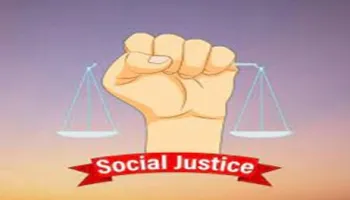Observed annually on February 20, the World Day of Social Justice serves as a universal reminder of the enduring struggle for fairness, human dignity, and equal rights. This day emphasises the urgent need to dismantle discrimination, oppression, and systemic inequality, which continue to hinder societal advancement. While many nations mark this occasion by addressing issues such as poverty, joblessness, and exclusion, one crucial yet often overlooked concern is the suffering of people in Pakistan-occupied Kashmir for decades, the region has endured repression, denial of civil liberties, and political subjugation, demanding immediate global intervention
For over seven decades, PoK has remained under Pakistan’s unlawful occupation, depriving its people of democratic rights, socio-economic development, and fundamental freedoms. In stark contrast, Jammu and Kashmir, under Indian administration, has experienced a transformative journey marked by advancements in education, healthcare, and infrastructure, leading to remarkable economic growth. Meanwhile, PoK remains trapped in stagnation, neglect, and authoritarian rule. The voices of its people are either silenced through force or ignored by the world, with any opposition to Pakistan’s autocratic governance met with severe repression.
Reports emerging from the region paint a bleak reality—political exclusion, human rights violations, and economic deprivation have become the norm. Peaceful protests against Pakistan’s mismanagement are frequently crushed with brute force, leading to arbitrary detentions, enforced disappearances, and suppression of dissent. Strict media censorship, minimal access to quality education, and a lack of employment opportunities have further exacerbated the struggles of PoK’s residents.
Adding insult to injury, PoK’s rich natural resources, including hydropower and mineral wealth, are ruthlessly exploited by Pakistan’s administration, yet the local population remains impoverished. Basic infrastructure such as hospitals, roads, and schools is severely underdeveloped, deepening the chasm between PoK and Jammu & Kashmir, which continues to flourish under India’s democratic framework. The disparity is glaring one region thrives under progress while the other remains shackled by oppression.
True justice for the people of PoK means freedom from Pakistan’s exploitative rule and the opportunity to reunite with a nation that prioritises democracy, development, and human rights. In recent years, many PoK residents have voiced their desire to reintegrate with India, realising the vast difference in governance, economic opportunities, and quality of life. Their aspirations align with the core principles of social justice—equality, autonomy, and civil liberties. Meanwhile, Jammu and Kashmir, under Indian administration, has witnessed an unprecedented wave of progress. With strategic investments in technology, digital infrastructure, and skill-based education, the region has experienced significant economic growth. Initiatives centred on youth empowerment, tourism, and industrial development have generated ample job opportunities, highlighting the benefits of a democratic and transparent governance system.
The contrast is irrefutable: while one part of Kashmir enjoys prosperity and stability, the other languishes under Pakistan’s oppressive regime. The people of PoK deserve the same liberties, economic opportunities, and dignity as their counterparts in Jammu & Kashmir. The demand for justice is not just justified—it is imperative.
The World Day of Social Justice must go beyond symbolic observances—it should catalyse action. The international community must recognise the suffering of PoK’s people and actively advocate for their self-determination and freedom. Global human rights organisations, policymakers, and diplomatic institutions must hold Pakistan accountable for its long-standing history of oppression and exploitation while amplifying the voices calling for justice and independence. Justice for PoK is a regional issue and a global humanitarian crisis. The world’s silence and inaction only embolden the oppressors. The international community must condemn the persecution and economic strangulation inflicted upon PoK’s people.
The essence of social justice lies in the elimination of tyranny, restoration of dignity, and the provision of equitable opportunities. For the people of PoK, this means breaking free from Pakistan’s exploitative grasp and embracing a future defined by progress, democracy, and human rights. On this World Day of Social Justice, the world must acknowledge that justice delayed is justice denied. The people of PoK deserve more than mere sympathy—they deserve real action. The fight for justice must persist until every Kashmiri enjoys the same freedoms, rights, and opportunities. Only then can we truly uphold the values of social justice? Until that day, the call for equity, dignity, and liberation must resonate worldwide.


